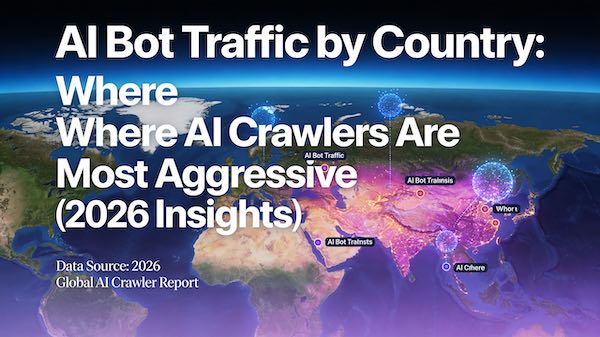
So, let’s find out how to rank a website in a specific country so you can watch your website climb to the top of country-specific search results.
Why is Local Ranking Crucial for Your Website?
Search engine optimization (SEO) is an essential digital marketing strategy that focuses on improving a website's visibility in search engine results. However, there's a significant difference between global and local ranking.
When we talk about global SEO, we're referring to a more comprehensive approach that aims at making your site visible on a worldwide scale. It's ideal for businesses offering products or services that are universally demanded.
On the other hand, local SEO concentrates more on reaching customers in a specific geographical area or country. It's a perfect fit for businesses that want to be more visible in a specific location and attract local users.
Why would one want to optimize for local instead of global, you ask? Well, the primary reason centers around competition.
In global SEO, you're up against websites from all around the world. Whereas in local SEO, you're only contending with websites that are targeting your specific geographical area.
Additionally, ranking highly in a particular country can bolster your business's local presence, credibility, and customer trust. More so, you enhance your chances of appearing in local search results or Google Maps listings.
🔍 For more details, read our blog post: Local SEO vs. Global SEO (International SEO)

10 Key Factors of Ranking a Website in a Specific Country
Making your site locally relevant requires a plan that goes beyond just adding a local address or phone number to your contact information.
Boosting relevance isn't about tweaking your site to resemble a local billboard; it's about creating a space where local users feel welcomed and understood. It's about speaking directly to the local audience, addressing their unique needs and wants, using their language, cultural references, and understanding their pain points.
This process is dynamic, continually evolving, and updating to meet the needs and preferences of the local audience.
So, let’s explore these detailed components:
01- Keyword Research

In the realm of SEO, keyword research acts as the compass guiding you towards your target audience's searches. It revolves around identifying popular words, terms, and phrases that people enter into search engines.
Incorporating geo-specific keywords is a smart way to assert your local presence. Your list of keywords should include the name of the targeted city, state, or country.
Also, it's essential to understand the local language nuances, dialects, and colloquial terms. A term commonly used in one country may not hold relevance in another. Google Trends can play a crucial role here in helping you identify location-specific search terms.
Moreover, considering the latest voice search trends, using long tail keywords framed in a conversational tone could boost your local SEO.
By registering with SEOmator's dashboard, you can find popular keywords and make more informed decisions about which keywords to incorporate into your SEO strategy.
02- Localized Content
Localized content refers to content that has been created or adapted specifically for a particular region or country. This can relate to language translation, culturally relevant images or references, local news, or events, and even pricing in the local currency.
Understand your local audience's culture, needs, and preferences. Use a tone, style, and language that resonate with them. Including local slang or phrases can make your content more relatable and engaging.
If you're targeting a specific country, prioritize writing about topics that matter to that audience. This could include local events, attractions, reviews, and offers in your industry.
Furthermore, metadata such as meta titles and meta descriptions should include local keywords. This can significantly improve your visibility in local search results.
03- Country Code Domain
A country code top-level domain (ccTLD) is an internet domain that generally signifies a specific geographic location.
For instance, .co.uk for the United Kingdom, .ca for Canada, or .au for Australia, to name a few.
Owning a ccTLD sends a strong signal to search engines and users about your website's target location. This could make your website the preferable choice over a competitor in local search results.
However, remember that deploying a ccTLD requires a thoughtful evaluation of website design, hosting costs, and regular maintenance aspects.
04- Hreflang Tags
Hreflang tags are a technical solution for websites that have similar content in multiple languages. They are used to tell search engines which language you're using on a specific page so they can serve that result to users searching in that language.
If you have a multi-lingual, multi-regional site, these tags can be an essential element of your SEO strategy. They can help ensure the correct language version of your site is shown to the correct audience, avoiding the common issue of mixed-up languages in search results.
Before embedding an hreflang tag, identify the language and region for which the page is relevant. For example, if your page is designed for French speakers in Canada, the hreflang tag will be fr-ca.
The hreflang tag should be implemented in the <head> section of your HTML code. The format would be:
<link rel="alternate" hreflang="fr-ca" href="http://example.ca/fr/" />
Don’t forget to implement hreflang tags on all versions of your page, including both desktop and mobile. With the correct implementation, hreflang tags can prevent any confusion for search engines and users by marking each page's appropriate language and region.
05- Local Hosting
When we discuss local hosting, it's mostly about where your site's data is physically stored. Most web hosting companies have servers around the world, meaning you can choose to host your site closer to your target audience’s physical location.
Your website's server location indirectly contributes to your site's SEO performance. That is because server position can impact your website's loading speed—one of the critical factors in Google's ranking algorithm.
A local hosting server can deliver your content slightly faster to local users, considering the proximity factor. A fraction of a second might not sound like much of a difference, but when you're vying for user attention in an online landscape, where people often decide to stay or leave within seconds, every millisecond counts!
06- Google Business Profile

Google Business Profile (formerly Google My Business) is a free tool that allows you to manage your online presence on Google, including Search and Maps.
Claiming your Google Business listing makes sense because it leads to increased visibility on SERPs, with potential customers seeing your business’s ratings and reviews upfront.
When creating your profile, ensure that all fields are accurately filled out, including business name, address, and phone number, hours of operation, and business category.
Also, images of your business's exterior and interior, along with positive reviews can significantly enhance your listing.
07- Backlinks from Local Sites
Backlinks are essentially a vote of confidence from one site to another. When local sites link to your website, they pass on some local SEO juice that significantly improves your chances of a higher local ranking.
Consider writing guest blogs for local websites and obtaining a backlink in return.
Establish partnerships with local businesses and exchange backlinks. Don’t neglect to engage in local PR activities, and earn backlinks from local news or event pages.
Of course, it’s vital to focus on getting backlinks from reputable, high-authority local sites.
🔍 For more details about how to deal with low-quality backlinks, read our blog post: How to Find Spammy Backlinks & How to Get Rid of Them
08- Social Media Localization
With the ever-increasing use of social media, localizing your social media profiles is a smart move, especially when seeking local dominance.
Ensure to mention your location in your social media profiles and add local hashtags to your posts. It is an effective method of appearing in local search results within social platforms.
Interact with your local followers. Any engagement, either comments, likes, or shares, can make your page appear more relevant to the local audience.
09- Local Reviews and Testimonials

Encourage your customers to leave Google reviews. A higher number of positive reviews can improve your visibility on Google and bolster your local SEO rankings.
Besides Google, ensure your business is listed on popular local review sites. The more positive reviews you have on these platforms, the better.
Moreover, have a dedicated section on your website to showcase customer testimonials. Adding the location of your clients can bolster your local relevance.
It’s crucial to understand that only genuine reviews build reputation and trust. Shunning unethical practices like fake reviews is essential to maintaining and improving your brand's credibility.
Businesses often make the mistake of neglecting negative reviews. Instead, use them as an opportunity to showcase your customer service by responding promptly and professionally to these reviews.
🔍 For more details about how to deal with negative reviews, read our blog post: Can You Remove a Google Review?
10- Monitoring and Analysis
As the algorithms of search engines evolve, so must our strategies to maintain or improve the rankings. This phenomenon underlines why monitoring and analyzing your site's performance is crucial in your quest for local ranking dominance.
Monitoring and analyzing your site's performance need not be a laborious task that demands complex statistical knowledge or expertise. Several online tools allow you to keep a close eye on your site's performance metrics and evaluate them with relative ease.
You can easily utilize SEOmator’s Free Google SERP Rank Checker to monitor your website’s Google SERP ranking, so that you can adjust your local SEO strategies accordingly.
Conclusion
When strategizing for local SEO, particularly, we cannot overlook the power of local relevance. In our guide, we explored several key components that can help you create a niche for yourself and emerge as an industry leader in your local market.
Catering to your user's needs, anticipating their expectations, and exceeding them is the path to creating a loyal user base.
Enhance your website's performance, strategize your content better, and align it with what your local audience is actively searching for to improve your local rankings!
🔍 See also:
- Short-Form vs. Long-Form Content: Which Should You Choose?





